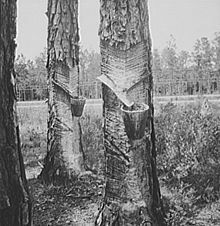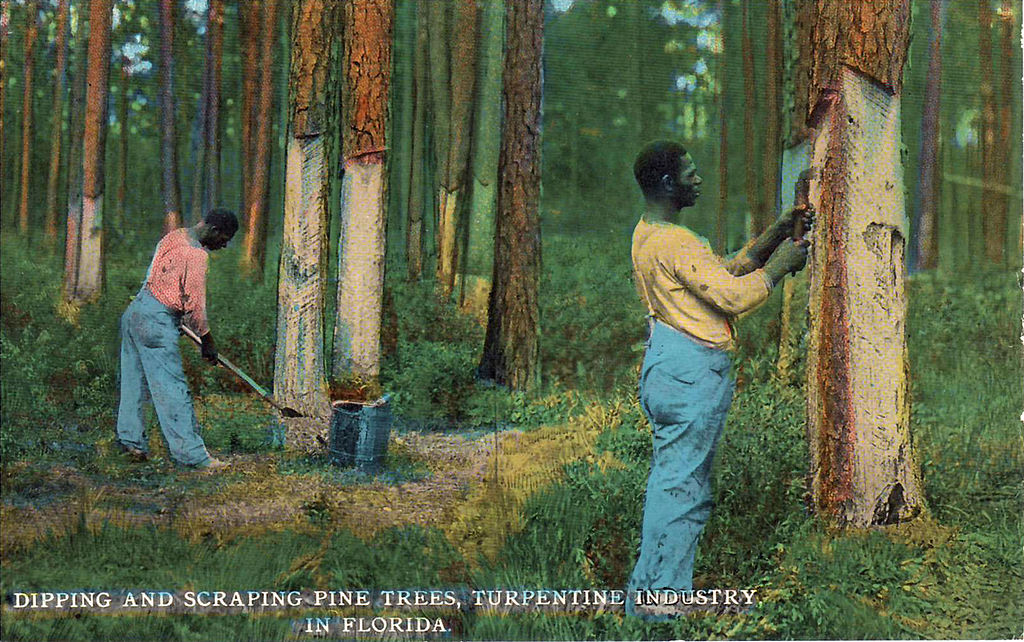
Turpentine
Herbs
[Turpentine (also called spirit of turpentine, oil of turpentine, wood turpentine and colloquially turps) is a fluid obtained by the distillation of resin obtained from live trees, mainly pines.]
In The Cyclopaedia of Practical Medicine by John Forbes, he details the science behind the oil of turpentine; “The oil of turpentine, in large doses, has for some years past in this country almost displaced all other remedies in the treatment of taenia; a sufficient evidence of its efficacy. Dr. Fenwick of Durham generally gets the credit of having first made its value known to the public by a paper published in the Medico-Chirurgical Transactions in the year 1811. He had been made acquainted with the utility and safety of the practice by a nonprofessional person, who had employed it in several cases with success; and the latter, in his turn, had been instructed in its use by a seafaring man, who, having frequently freed himself from large portions of tape-worm by means of gin, was led by analogy to expect similar but still more marked effects from the spirits of turpentine; and on trial his expectations were not disappointed. The use of turpentine as an anthelmintic is noticed in Rudolphi’s work published in 1808 ; and Underwood informs us that Dr. James Sims had given it, in two-drachm doses, in cases of worms, with success.

